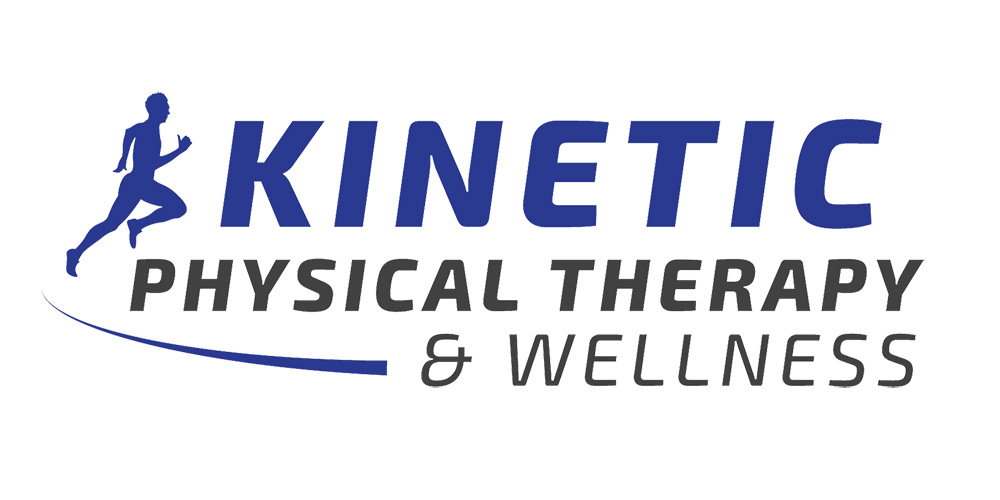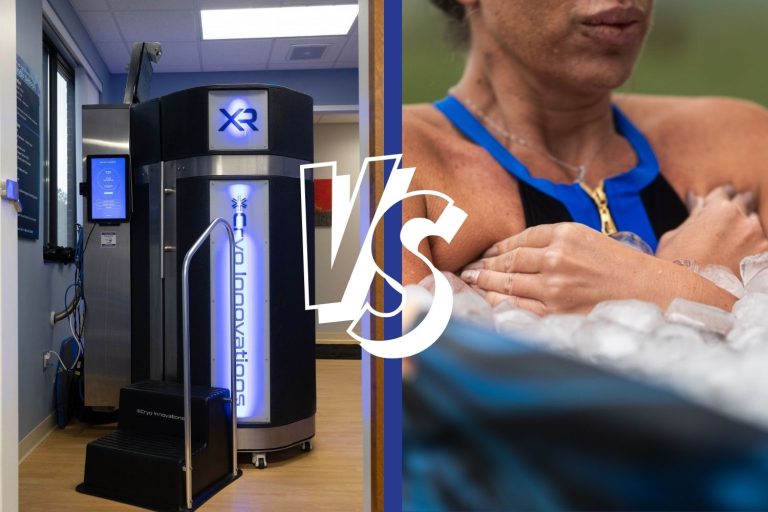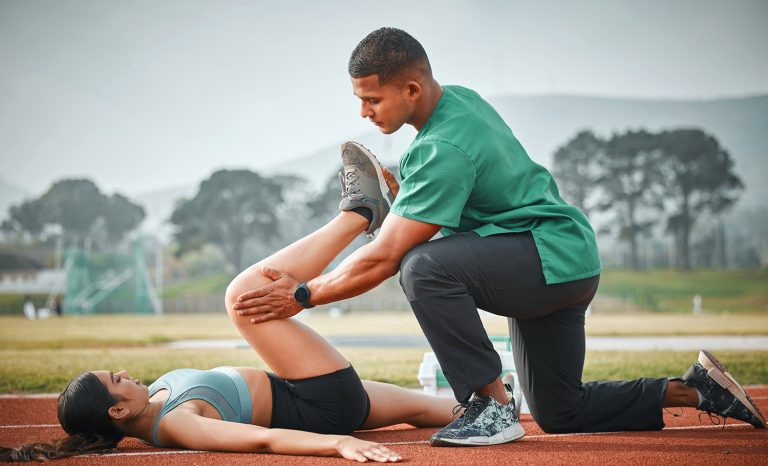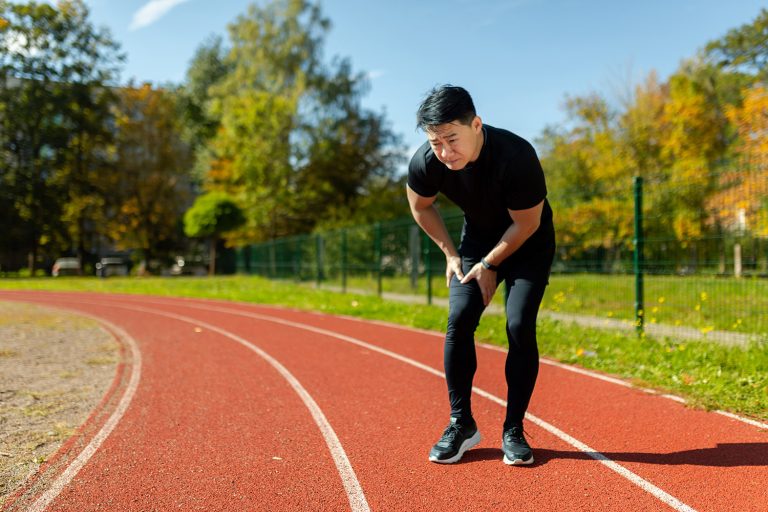

How Sports Therapy Supports Mental Resilience After Injury
The Mental Side of Recovery
In the world of sports, physical injuries are a common occurrence. Whether it’s a sprained ankle, a torn ligament, or a muscle strain, injuries can be devastating for athletes. While the physical aspect of recovery is often the main focus, the mental side of recovery is just as important. Sports therapy not only addresses the physical healing process but also plays a significant role in helping athletes overcome the mental challenges that come with injury. Building mental resilience is key to ensuring a successful return to sport and maintaining long-term athletic performance.
Mental Toughness – The Psychological Edge in Sports Performance
Building Mental Resilience and Overcoming the Fear of Re-Injury
One of the most common mental hurdles that athletes face after an injury is the fear of re-injury. Even after their body has fully healed, many athletes are hesitant to push themselves to their previous level of performance, worried that they might get hurt again. This fear can be paralyzing, preventing athletes from performing at their best and ultimately prolonging their return to competitive play.
Sports therapy addresses this mental challenge and helps build mental resilience by gradually reintroducing athletes to their sport and helping them regain confidence in their body’s abilities. A sports therapist will work with the athlete to build trust in their physical capabilities through controlled, progressive exercises. As the athlete sees improvements in their strength, mobility, and endurance, their confidence grows, and the fear of re-injury begins to diminish.
In addition to physical training, sports therapists often use psychological techniques such as visualization and mental rehearsal to help athletes overcome their fear. Visualization involves mentally practicing movements or skills in a safe, controlled environment. By visualizing themselves performing their sport successfully, without injury, athletes can rewire their brain to associate their movements with positive outcomes rather than fear or pain.
Advanced Techniques for Sports Injury Rehabilitation
Regaining Confidence in Physical Capabilities
After an injury, athletes may lose confidence in their physical abilities. They might feel unsure about their strength, speed, or agility, leading to hesitation during training or competition. This lack of confidence can not only affect performance but also increase the risk of future injuries, as athletes may alter their movements to compensate for perceived weaknesses.
Sports therapy helps athletes regain confidence by providing them with clear, measurable benchmarks for progress. Whether it’s lifting a certain weight, running a specific distance, or achieving full range of motion, these milestones give athletes tangible evidence that they are getting stronger and closer to full recovery.
Therapists also provide encouragement and motivation, reminding athletes of the progress they’ve made and the goals they’re working towards. This positive reinforcement is crucial for rebuilding self-confidence and ensuring that athletes believe in their ability to return to peak performance.
Coping with Setbacks: Developing a Growth Mindset
Injuries often come with setbacks, and recovery is rarely a linear process. There will be days when an athlete feels strong and ready to push forward, and there will be days when progress seems to stall or regress. These setbacks can be mentally exhausting and frustrating, leading some athletes to feel discouraged or even consider giving up.
Sports therapy plays a vital role in helping athletes develop a growth mindset, which is the belief that challenges and setbacks are opportunities for learning and improvement rather than signs of failure. A growth mindset encourages athletes to view recovery as a process, understanding that progress is not always immediate but is achievable with consistent effort and patience.
Sports therapists work with athletes to set realistic, attainable goals and celebrate small victories along the way. By focusing on what they can control—such as their effort, attitude, and dedication to their rehabilitation program—athletes can stay motivated and resilient, even in the face of setbacks.
Building Mental Resilience: Preparing for the Mental Demands of Competition
In addition to addressing the mental challenges of recovery, sports therapy also helps athletes build the mental toughness needed to return to competition. Mental toughness refers to the ability to stay focused, composed, and confident under pressure. For athletes recovering from an injury, the transition back to competitive play can be daunting. They may feel nervous about performing at their previous level or fear reinjury in the heat of competition.
Sports therapy helps athletes build mental toughness by simulating game-like scenarios in a controlled environment. Through progressive drills, sports therapists reintroduce athletes to the intensity of their sport, helping them build confidence in their body’s ability to handle the demands of competition. This gradual exposure reduces anxiety and helps athletes feel mentally prepared for the challenges ahead.
In addition, sports therapists often teach mental skills such as mindfulness, deep breathing, and focus techniques. These tools allow athletes to stay calm and centered during high-pressure situations, reducing the risk of mental fatigue and performance anxiety.
Supporting Emotional Well-Being: The Role of Emotional Support in Recovery
Injuries can take a toll on an athlete’s emotional well-being. Many athletes experience feelings of frustration, sadness, or even depression when they’re unable to participate in their sport. This emotional distress can slow down the recovery process and make it difficult for athletes to stay motivated.
Sports therapy provides not only physical rehabilitation but also emotional support. Sports therapists often act as a source of encouragement and understanding, offering a safe space for athletes to express their fears, frustrations, and concerns. By providing emotional support, sports therapists help athletes stay positive and motivated throughout the recovery process.
For some athletes, sports therapy also includes working with a sports psychologist or counselor to address deeper emotional challenges. These professionals can help athletes develop coping strategies for dealing with the emotional highs and lows of recovery and ensure that they are mentally and emotionally prepared to return to their sport.
The Power of Mental Resilience in Sports Therapy
The road to recovery after an injury is not just about physical healing—it’s also about building mental resilience. Sports therapy plays a critical role in supporting athletes through the mental challenges of recovery, helping them overcome fear, regain confidence, and develop the mental toughness needed to return to competitive play.
By addressing both the physical and psychological aspects of recovery, sports therapy ensures that athletes can make a full and successful return to their sport. With the right mindset and support, athletes can not only recover from injury but also emerge stronger, more resilient, and better prepared to handle the challenges of their sport.
🏋️♂️ Recover faster and perform better with personalized Sports Therapy! At Kinetic Physical Therapy and Wellness in Greenville, NC, we specialize in helping athletes overcome injuries and reach peak performance. Our expert therapists provide individualized care designed to speed up recovery, prevent future injuries, and enhance your athletic abilities. Whether you’re dealing with a sports-related injury or looking to improve your performance, our tailored sports therapy sessions are here to support your journey. 🌟 Get back in the game stronger than ever—schedule your Sports Therapy session today and experience the power of expert care!
Please Share
categories
Recent Posts

How Sports Therapy Supports Mental Resilience After Injury
The Mental Side of Recovery
In the world of sports, physical injuries are a common occurrence. Whether it’s a sprained ankle, a torn ligament, or a muscle strain, injuries can be devastating for athletes. While the physical aspect of recovery is often the main focus, the mental side of recovery is just as important. Sports therapy not only addresses the physical healing process but also plays a significant role in helping athletes overcome the mental challenges that come with injury. Building mental resilience is key to ensuring a successful return to sport and maintaining long-term athletic performance.
Mental Toughness – The Psychological Edge in Sports Performance
Building Mental Resilience and Overcoming the Fear of Re-Injury
One of the most common mental hurdles that athletes face after an injury is the fear of re-injury. Even after their body has fully healed, many athletes are hesitant to push themselves to their previous level of performance, worried that they might get hurt again. This fear can be paralyzing, preventing athletes from performing at their best and ultimately prolonging their return to competitive play.
Sports therapy addresses this mental challenge and helps build mental resilience by gradually reintroducing athletes to their sport and helping them regain confidence in their body’s abilities. A sports therapist will work with the athlete to build trust in their physical capabilities through controlled, progressive exercises. As the athlete sees improvements in their strength, mobility, and endurance, their confidence grows, and the fear of re-injury begins to diminish.
In addition to physical training, sports therapists often use psychological techniques such as visualization and mental rehearsal to help athletes overcome their fear. Visualization involves mentally practicing movements or skills in a safe, controlled environment. By visualizing themselves performing their sport successfully, without injury, athletes can rewire their brain to associate their movements with positive outcomes rather than fear or pain.
Advanced Techniques for Sports Injury Rehabilitation
Regaining Confidence in Physical Capabilities
After an injury, athletes may lose confidence in their physical abilities. They might feel unsure about their strength, speed, or agility, leading to hesitation during training or competition. This lack of confidence can not only affect performance but also increase the risk of future injuries, as athletes may alter their movements to compensate for perceived weaknesses.
Sports therapy helps athletes regain confidence by providing them with clear, measurable benchmarks for progress. Whether it’s lifting a certain weight, running a specific distance, or achieving full range of motion, these milestones give athletes tangible evidence that they are getting stronger and closer to full recovery.
Therapists also provide encouragement and motivation, reminding athletes of the progress they’ve made and the goals they’re working towards. This positive reinforcement is crucial for rebuilding self-confidence and ensuring that athletes believe in their ability to return to peak performance.
Coping with Setbacks: Developing a Growth Mindset
Injuries often come with setbacks, and recovery is rarely a linear process. There will be days when an athlete feels strong and ready to push forward, and there will be days when progress seems to stall or regress. These setbacks can be mentally exhausting and frustrating, leading some athletes to feel discouraged or even consider giving up.
Sports therapy plays a vital role in helping athletes develop a growth mindset, which is the belief that challenges and setbacks are opportunities for learning and improvement rather than signs of failure. A growth mindset encourages athletes to view recovery as a process, understanding that progress is not always immediate but is achievable with consistent effort and patience.
Sports therapists work with athletes to set realistic, attainable goals and celebrate small victories along the way. By focusing on what they can control—such as their effort, attitude, and dedication to their rehabilitation program—athletes can stay motivated and resilient, even in the face of setbacks.
Building Mental Resilience: Preparing for the Mental Demands of Competition
In addition to addressing the mental challenges of recovery, sports therapy also helps athletes build the mental toughness needed to return to competition. Mental toughness refers to the ability to stay focused, composed, and confident under pressure. For athletes recovering from an injury, the transition back to competitive play can be daunting. They may feel nervous about performing at their previous level or fear reinjury in the heat of competition.
Sports therapy helps athletes build mental toughness by simulating game-like scenarios in a controlled environment. Through progressive drills, sports therapists reintroduce athletes to the intensity of their sport, helping them build confidence in their body’s ability to handle the demands of competition. This gradual exposure reduces anxiety and helps athletes feel mentally prepared for the challenges ahead.
In addition, sports therapists often teach mental skills such as mindfulness, deep breathing, and focus techniques. These tools allow athletes to stay calm and centered during high-pressure situations, reducing the risk of mental fatigue and performance anxiety.
Supporting Emotional Well-Being: The Role of Emotional Support in Recovery
Injuries can take a toll on an athlete’s emotional well-being. Many athletes experience feelings of frustration, sadness, or even depression when they’re unable to participate in their sport. This emotional distress can slow down the recovery process and make it difficult for athletes to stay motivated.
Sports therapy provides not only physical rehabilitation but also emotional support. Sports therapists often act as a source of encouragement and understanding, offering a safe space for athletes to express their fears, frustrations, and concerns. By providing emotional support, sports therapists help athletes stay positive and motivated throughout the recovery process.
For some athletes, sports therapy also includes working with a sports psychologist or counselor to address deeper emotional challenges. These professionals can help athletes develop coping strategies for dealing with the emotional highs and lows of recovery and ensure that they are mentally and emotionally prepared to return to their sport.
The Power of Mental Resilience in Sports Therapy
The road to recovery after an injury is not just about physical healing—it’s also about building mental resilience. Sports therapy plays a critical role in supporting athletes through the mental challenges of recovery, helping them overcome fear, regain confidence, and develop the mental toughness needed to return to competitive play.
By addressing both the physical and psychological aspects of recovery, sports therapy ensures that athletes can make a full and successful return to their sport. With the right mindset and support, athletes can not only recover from injury but also emerge stronger, more resilient, and better prepared to handle the challenges of their sport.
🏋️♂️ Recover faster and perform better with personalized Sports Therapy! At Kinetic Physical Therapy and Wellness in Greenville, NC, we specialize in helping athletes overcome injuries and reach peak performance. Our expert therapists provide individualized care designed to speed up recovery, prevent future injuries, and enhance your athletic abilities. Whether you’re dealing with a sports-related injury or looking to improve your performance, our tailored sports therapy sessions are here to support your journey. 🌟 Get back in the game stronger than ever—schedule your Sports Therapy session today and experience the power of expert care!
Please Share







